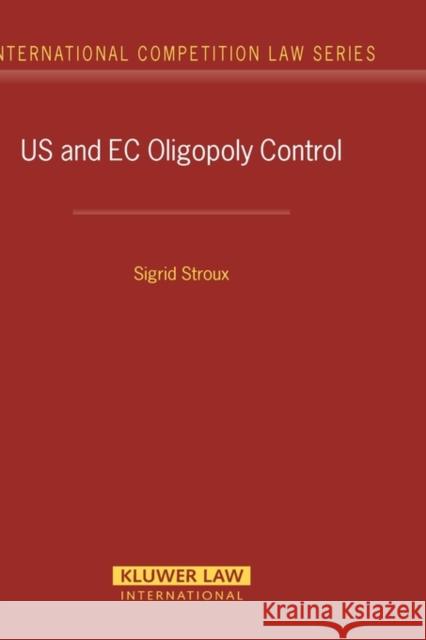US and EC Oligopoly Control » książka
US and EC Oligopoly Control
ISBN-13: 9789041122964 / Angielski / Twarda / 2004 / 269 str.
When major suppliers independently (or otherwise) perceive that they can collectively control the market price of a product, is it collusion? Not necessarily. Yet for consumers this interdependent pricingvariously called tacit collusion, or conscious parallellismis experienced precisely as collusion would be experienced. This kind of oligopolistic market distortion, though clearly illegal in the intent of all antitrust and competition lawand just as clearly rampant in todays globalised trading systemusually succeeds in evading existing legislation. Antitrust authorities encounter great difficulties coping with such markets. Can this situation be remedied? Here is a deeply researched and very detailed book that explores, as thoroughly as has ever been done whether competition law can combat oligopolistic markets. Drawing on the two bodies of lawU.S. and ECthat offer the widest range of experience, US and EC Oligopoly Control assesses whether, by the rule of law, the destructive economic trend that is becoming more and more characteristic of todays global economy can be countered by means of applying the core competition provisions. Among the crucial legal concepts examined in the book in depth are the following: abuse of a collective dominant position; facilitating practices; substantial lessening of competition; and non-coordinated unilateral effects. In a brilliantly original discourse, Stroux also confronts the possibility of preventing anticompetitive oligopolistic markets from coming into existence. The focus here is on merger control, and on how the core provisions of EC competition law can be construed to make, in the words of J.K. Galbraith, satisfactory contact with olipology. Any practitioner, policymaker, or academic in the field of competition law could hardly ask for a more thoroughly documented work. EC and U.S. antitrust law is examined, and dozens of court decisions are quoted, with complete citations throughout. The book is a gold mine for anyone interested in the important task of extending the reach of competition law and antitrust law in this era of globalization. Review In this comprehensive work the author deals with the application of the core competition provisions, both in the US and the EU, to oligopolistic markets which function anti-competitively. Strouxs thorough analysis of the subject-matter and accessible writing style, based on a solid structure, make the book a valuable guide for practitioners and scholars. Prof. Richard Whish, Kings College, London (University of London)











